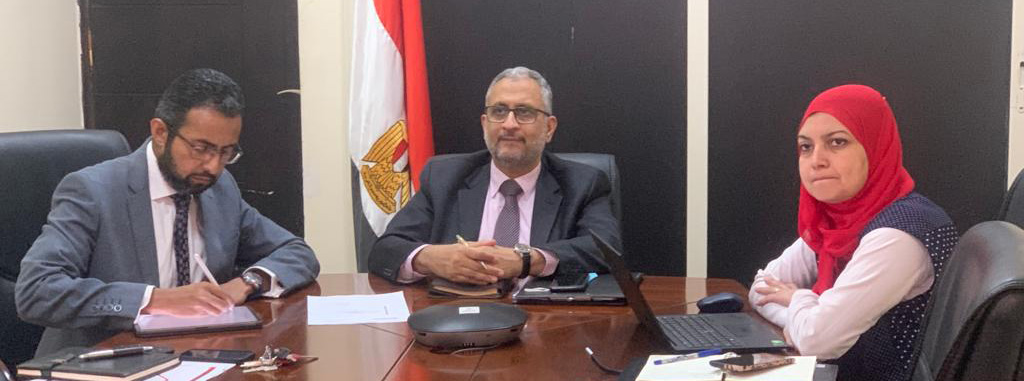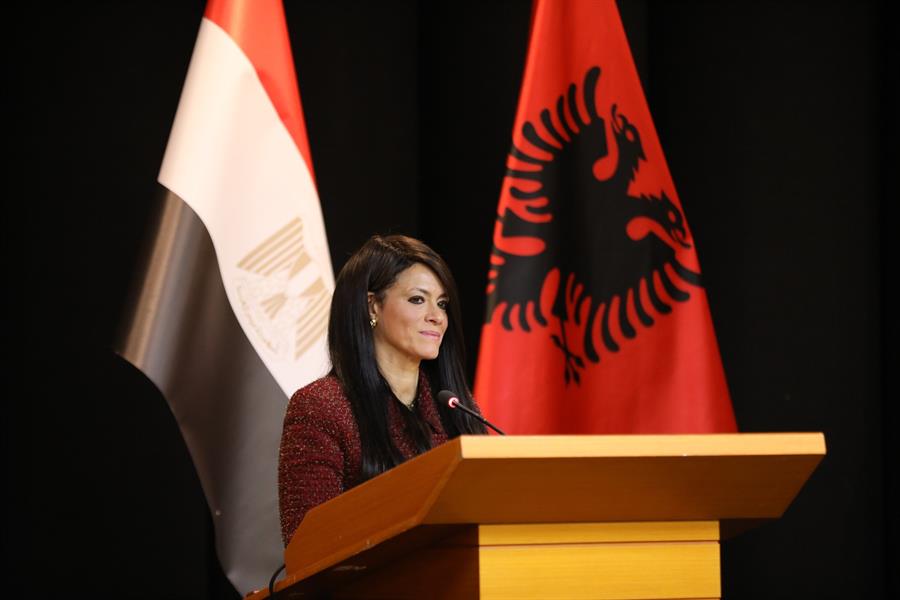Egypt Award for Gov't Excellence, Supreme Council of Universities follow the final judging process for the internal awards at Tanta University

13 April 2022
The Egypt Award for Gov't Excellence team, headed by Eng. Khaled Mostafa, Permanent Undersecretary of the Ministry of Planning and Economic Development and General Supervisor of the Award, and Dr. Dalia Sami, Assistant Secretary-General of the Supreme Council of Universities, held a video conference meeting with the internal excellence assessment team at Tanta University.
The meeting sought to follow up on the final arbitration process for the university's internal awards, to which 11 colleges were submitted.
During the meeting, Eng. Khaled Mustafa praised the continuous cooperation and joint coordination with all parties, stressing that the award’s message is to support a culture of excellence in government institutions to achieve a quality of life and enhance the leadership and competitiveness of the Egyptian state to form an important tributary of sustainable development.
Mostafa stressed that universities are among the most important tools for developing the culture of society, not only for their prominent and pioneering role in the field of education and scientific research, as they are a platform for knowledge, noting that the Egyptian universities' keenness to participate in implementing the internal excellence system enhances and supports institutional excellence.
For his part, Dr. Mohamed Hussein, Vice President of Tanta University for Community Service and Environmental Development and the university’s internal excellence officer, pointed to the importance of the internal awards initiative in Egyptian universities, praising the efforts made by those in charge of implementing the project at the university, and the continuous support provided by the Supreme Council of Universities.
Meanwhile, Dr. Dalia Sami, Assistant Secretary-General of the Supreme Council of Universities, expressed her appreciation for the cooperation relations between the Supreme Council of Universities and the award administration, stressing the Council's keenness to provide full support for the dissemination and implementation of the excellence system within public universities.
During the meeting, the main stages of the internal awards project were reviewed, starting with the training stage for the staff and evaluators, submitting applications for candidacy, followed by the evaluation stages with the provision of the electronic system for managing the evaluation process, followed by the presentation of the final results with the heads of the evaluation and quality committee presenting the final recommendations, and shedding light on the strengths and opportunities for improvement for eligible colleges.









